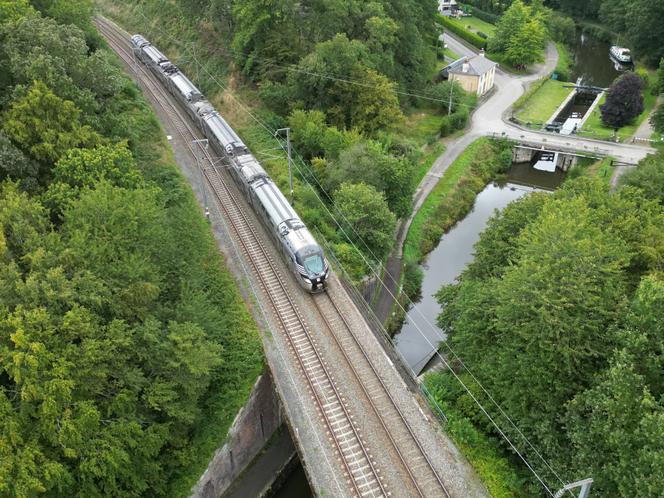


On September 4, French President Emmanuel Macron, interviewed live by YouTuber Hugo Travers, said he was "in favor" of establishing a German-style rail pass in France, in other words, a subscription allowing unlimited use of TER (regional express trains), Intercités (trains between large cities) and local public transport services – but not high-speed trains (TGV) – throughout the country for €49 a month.
The president was quick to point out that this could only be achieved in collaboration with regional authorities, who organize and finance their region's TERs. To get moving on this issue, these authorities have invited Clément Beaune, the Junior Minister for Transport, to take part in the first-ever Committee on Mobility between the French state and regions, to be held in Saint-Malo (western France) on Wednesday, September 27.
The idea of the pass has been picking up speed since the end of the first Covid-19 pandemic lockdown. In the summer of 2020, France's regions and its national rail service (SNCF) introduced a two-month, €29 Pass Jeune TER (Youth TER Pass) to boost seasonal travel. Germany, meanwhile, introduced a €9 ticket in 2022, followed by a €49 rail pass in May 2023.
Having arrived at the Ministry of Transport on July 4, 2022, Beaune was quick to seize on the idea, which offered several advantages from his perspective. Firstly, the initiative could be implemented quickly, unlike any infrastructure projects which he could launch, and which would then would be inaugurated by his successors. If the rail pass is ready by summer 2024, as he has promised, he will be able to cut the ribbon himself.
Secondly, the Minister has insisted "it's a great ecological project," which would be solely positive, with no constraints. Finally, it might not cost the public budget so much. "Currently, revenue from TER tickets is around €1.5 billion, while that of Intercités trains is €800 million a year," his team has said. These trains are subsidized by the regions and the State. From a budgetary standpoint, a pass would be a limited expense.
Beaune has been working on this for months, in various ways. In February, he launched a "hackathon," a competition with multi-disciplinary teams who were asked to imagine what a "single ticket", the format of this future national pass, could be like. The regions, involved in the project, are still awaiting clarification of the scheme.
To demonstrate her goodwill, Carole Delga, President of Régions de France, wrote to the Elysée Palace on September 6, saying she was ready to move forward on the subject, especially if it was aimed at young people, included the TGV and was (at least in part) financed by the State. Subsequently, Beaune clarified the presidential proposal: The pass is aimed at a wider demographic than 12-25-year-olds, leaves out TGVs, and, at least at first, would not be extended to metropolitan-area transport (trams, buses or subways), although this could be considered at a later stage.
You have 58.4% of this article left to read. The rest is for subscribers only.
